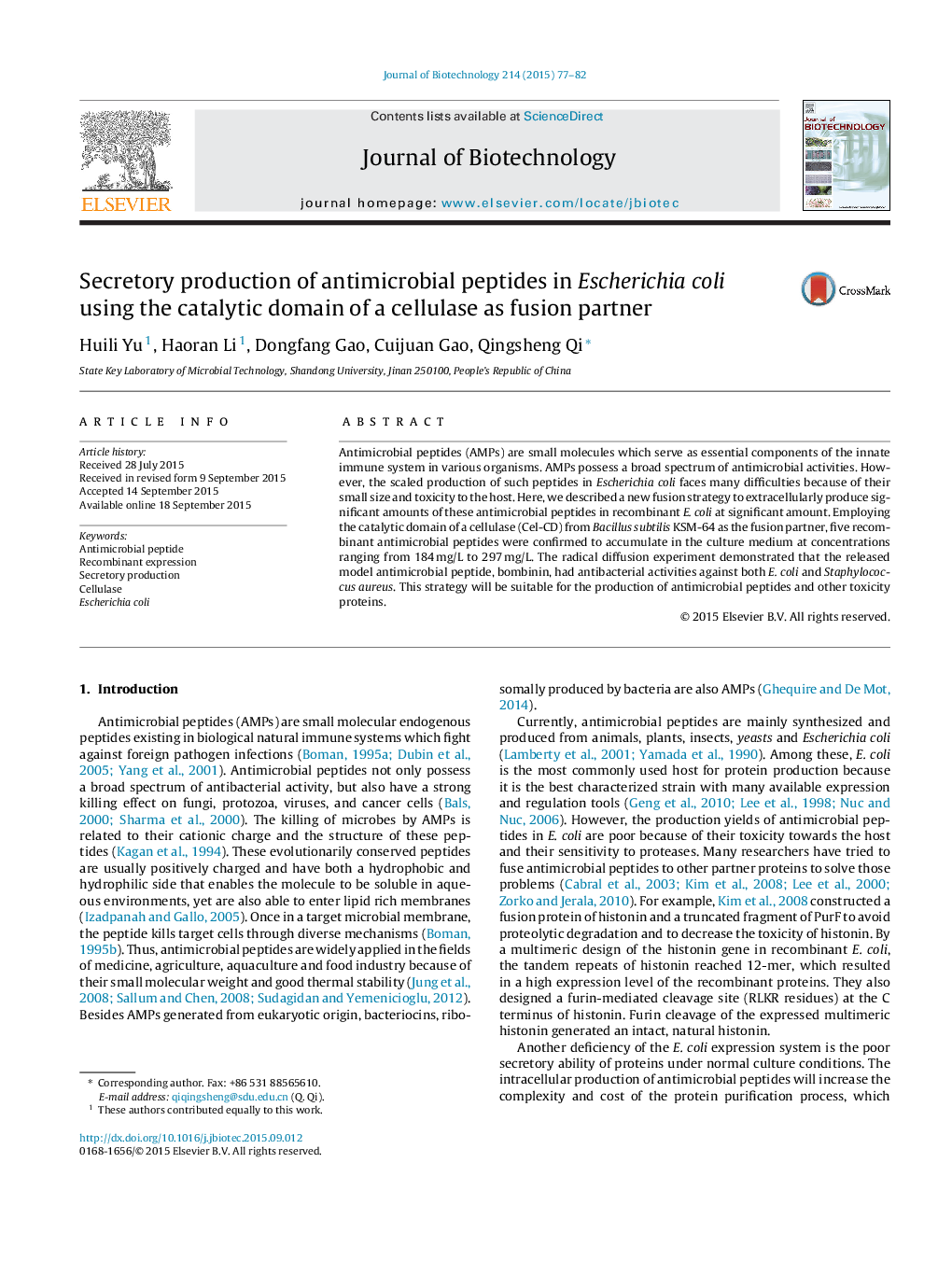| Article ID | Journal | Published Year | Pages | File Type |
|---|---|---|---|---|
| 6490835 | Journal of Biotechnology | 2015 | 6 Pages |
Abstract
Antimicrobial peptides (AMPs) are small molecules which serve as essential components of the innate immune system in various organisms. AMPs possess a broad spectrum of antimicrobial activities. However, the scaled production of such peptides in Escherichia coli faces many difficulties because of their small size and toxicity to the host. Here, we described a new fusion strategy to extracellularly produce significant amounts of these antimicrobial peptides in recombinant E. coli at significant amount. Employing the catalytic domain of a cellulase (Cel-CD) from Bacillus subtilis KSM-64 as the fusion partner, five recombinant antimicrobial peptides were confirmed to accumulate in the culture medium at concentrations ranging from 184Â mg/L to 297Â mg/L. The radical diffusion experiment demonstrated that the released model antimicrobial peptide, bombinin, had antibacterial activities against both E. coli and Staphylococcus aureus. This strategy will be suitable for the production of antimicrobial peptides and other toxicity proteins.
Related Topics
Physical Sciences and Engineering
Chemical Engineering
Bioengineering
Authors
Huili Yu, Haoran Li, Dongfang Gao, Cuijuan Gao, Qingsheng Qi,
